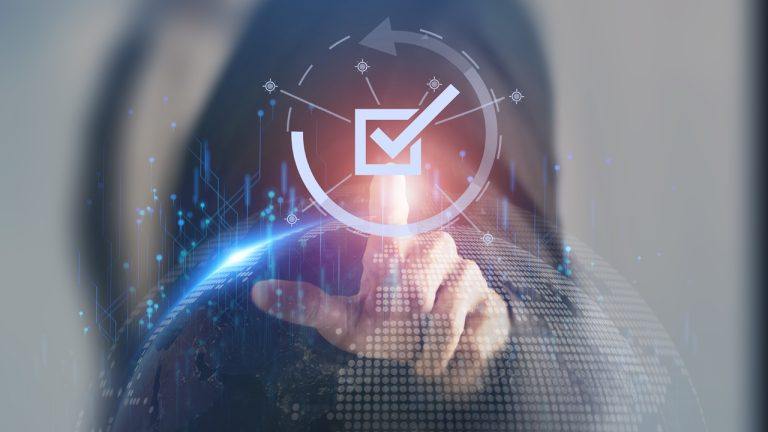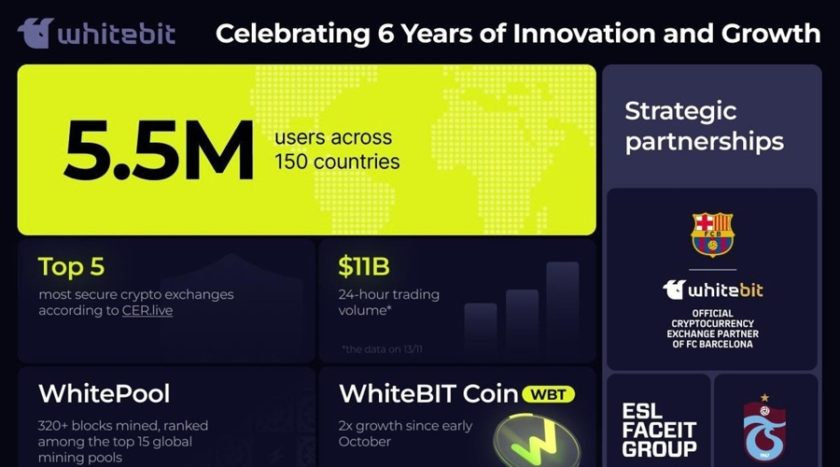Earlier this week, the number of Bitcoin (BTC) ATMs installed worldwide reached a new milestone, surpassing 6,000. Coincidentally, another major development just a day before occurred within the same area: The United States Internal Revenue Service said it was looking into potential tax issues caused by such ATMs and kiosks.
This development might allow the IRS to succeed in mitigating the use cryptocurrency for large-scale federal tax non-compliance, experts suggest. However, Bitcoin ATMs remain a low-transaction-size business which is already regulated enough to detect high-scale fraud.
Bitcoin ATMs, from a single kiosk to a multimillion dollar industry in six years
The world’s first-ever Bitcoin ATM opened in October 2013 at Waves Coffee House in Vancouver’s downtown area, while the first machine in the United States went online in February 2014 in Albuquerque, New Mexico (although, it was removed 30 days later).
Since then, Bitcoin ATMs have grown into a multi-million-dollar industry, as the companies who operate the machines collect sizeable fees (reportedly around 8.93%). For instance, Cottonwood, a firm that controlled 91 machines in New York as of December 2018, had a gross annual revenue ostensibly exceeding $35 million — about $385,000 in cash per machine — and just 13 employees, as per a Bloomberg investigation.
According to data from online resource CoinATMRadar, the U.S. currently has the most Bitcoin ATMs in the world. More specifically, there are 3924 machines installed across the country, accounting for over 65% of the world’s total Bitcoin ATMs. Moreover, the industry continues to develop at a rapid pace: Over 130 machines have been deployed this month alone, while the average daily number of Bitcoin ATMs installed is fluctuating at around seven.
Regulation: “totally legal” but still a gray area
As it tends to happen within most booming industries, sooner or later, regulators start to apply more scrutiny. On Nov. 15, the IRS Criminal Investigation Chief, John Fort, said that his agency is collaborating with law enforcement to investigate illicit uses of cryptocurrency through kiosks, stating:
“If you can walk in, put cash in and get bitcoin out, obviously we’re interested potentially in the person using the kiosk and what the source of the funds is, but also in the operators of the kiosks.”
Fort explained that such services are required to conform to Know Your Customer and Anti-Money Laundering rules: “They’re required to abide by the same know-your-customer, anti-money laundering regulations, and we believe some have varying levels of adherence to those regulations.” The IRS executive added that although the regulators haven’t had any public cases filed, they “do have open cases in inventory” related to cryptocurrency tax issues.
So how exactly is the industry regulated in the U.S.? It seems to fall into a grey area of the law. Cal Evans, founder of compliance and strategy firm Gresham International, told Cointelegraph:
“Most Bitcoin ATM owners that are trying to follow the rules, as much as possible, are relying on Money Transmitter laws. We see this strategy deployed with the bigger firms such as Coinbase. These laws differ from state to state with the USA, with the most notable exception being the state of New York where parties are required to own one of the notorious ‘Bitcoin’ Licenses to conduct this business.”
Thus, there are two levels of regulation: federal and state. As CEO of CoinATMRadar Matthew Hayes told Cointelegraph, the former is “similar in all the states and quite straightforward,” and aims to prevent illicit activities such as money laundering and tax evasion. State-level regulation, however, differs:
“Some states have relaxed rules and allow quite easy access to start such a business. In other states, there might be high requirements to operate incl. large size surety bonds and costly licenses.”
Thus, unlike traditional ATM operators, Bitcoin ATM operators are typically treated as Money Services Businesses that have to operate under Money Transmitter Licenses, the requirements for which vary by state, as Zachary Kelman, managing partner at Kelman.law, summed up in a conversation with Cointelegraph. However, there are some exceptions among more crypto-friendly states that differ from New York and Florida regulations:
“On the other end of the spectrum are states that are far more Bitcoin ATM-friendly — for example, the Pennsylvania Department of Banking and Securities has determined that cryptocurrency transactions are exempt from money transmitter rules, and the Wyoming legislature enacted a law exempting cryptocurrency businesses from MSB licensing requirements.”
Andrew Barnard, co-founder of Bitcoin ATM firm Bitstop, added that many states, including California, have still not made up their minds in regard to Bitcoin ATMs or do not require a Money Transmitter License as long as the crypto sold through the ATMs is a two-party transaction. He elaborated to Cointelegraph:
“States like Texas and others do not require a money transmitter license if you are selling your own Bitcoin to the person in front of the machine as opposed to just sending the Bitcoin directly from an exchange to the customer which would make it a three party transaction.”
Some other hindrances come with the lack of more clear-cut regulations, albeit less major. For instance, companies have difficulties with obtaining local city permits for Bitcoin ATMs, which is why they are usually installed in private establishments, Evans observed.
Indeed, as the Bloomberg investigation argued, most crypto kiosks in the U.S. tend to be located in corner shops, cigar bars and casinos. Nevertheless, there are some noticeable exceptions: Earlier this month, Bitstop installed one of its machines at the Miami International Airport, one of the largest airline hubs in the country.
Related: US Crypto Review: Top-5 States With Welcoming Regulations
As for the regulations, it seems that industry players do have concrete guidance to follow despite the juridical uncertainty that experts highlight. “FinCEN has been clear since 2013 about the KYC/BSA/AML requirements for cryptocurrency exchangers,” said Max Lopez, marketing director at Coin Cloud — a company that operates as a licensed Money Service Business and hosts over 350 cryptocurrency kiosks across the U.S.
“We only know the regulations we are following and can not speak for others in the cryptocurrency kiosk industry,” Lopez added, drawing a line between large businesses and smaller players. “It’s important to separate individual companies and not place them all under one umbrella as you have regional, hobbyist and ‘mom and pop’ operators with one machine.”
Barnard of Bitstop confirms that larger companies follow the same rules within the Bitcoin ATM industry. “The top legitimate operators in the space are registered with FinCEN on a federal level and maintain a AML/BSA compliance program which should be tested and updated regularly (once a year),” he told Cointelegraph, adding:
“It’s not that difficult to be registered on a federal level.”
What does the IRS development mean for the industry?
The IRS should have a “probable cause” or “reasonable belief” to delve into the Bitcoin ATM industry, according to Evans. As of now, “simply using the Bitcoin ATMs itself is in no way a crime,” the expert stressed, especially if the vendor is following MTLs and users are declaring their transactions to the IRS:
“Let’s paint a scenario, if you are a Bitcoin ATM user in the US (which is totally legal), and you declare those transactions on your tax return (as now required), the IRS could be in breach of constitutional rights by investigating the individual. Essentially, the IRS should not be able to tax activity it then deems as ‘illegal’ activity after the fact. Otherwise, where do we draw the line? Do we begin taxing drug dealers?”
Nevertheless, the IRS has been historically slow to act, which also suggests that the industry is far from being radically changed by the tax regulator, Evans adds. Kelman, however, envisions certain changes that might come with the IRS statement. He told Cointelegraph that some of their Bitcoin ATM operator clients had already engaged with the IRS:
“The IRS has been amenable to these clients and their businesses, asking for and accepting without issue the Bitcoin ATM users’ Know Your Customer (KYC) information, which is collected to the extent possible by Bitcoin ATM operators per compliance with MSB rules.”
Kelman explained that while his firm does not expect Bitcoin kiosk owners to close down in light of this development, they do expect changes to which the kiosk operators must respond, such as collecting KYC data from any user whose transactions require Currency Transaction Reports or Suspicious Activity Reports filings:
“The Financial Crimes Enforcement Network (FinCEN) already requires MSBs to file Currency Transaction Reports (CTRs) on all transactions in excess of $10,000 and Suspicious Activity Reports (SARs) for any and all suspicious transactions — or sequences of transactions — over $2,000.”
Kelman believes that the statement from the IRS will prompt users to conduct smaller transactions beneath the KYC limit. In his opinion, the IRS “will be able to greatly mitigate efforts to use cryptocurrency for large-scale federal tax non-compliance,” while small-scale tax cheats will likely stay under the radar.
Indeed, larger operators seem unfazed by the news. Both Coin Cloud and Bitstop representatives told Cointelegraph that while smaller Bitcoin ATM owners might not be forced to either become fully compliant or shut down, it remains business as usual for them.
Even if smaller players choose to play by the rules, they might still have to shut shop over time due to the costs associated with maintaining a thorough compliance program, Bitstop’s Barnard added. He also told Cointelegraph:
“Mr Fort is reasonable when he says there is most likely a high variance of compliance and adherence to regulations from operator to operator. This is true because there are different Bitcoin ATM hardware models that have different software stacks and perform compliance differently. Not all operators are created equal. There’s a lot of good guys, but our industry does have its own share of bad apples.”
As Evans of Gresham International told Cointelegraph, physical ATM machines harness a large amount of data about their users, such as card used, PIN number attempts, speed of PIN entry, date, time, transaction sizes, and pictures of their face. “The main concern the IRS has with the Bitcoin ATMs, is that some of these machines do not collect ANY data,” he said:
“If we compare this, for example, to online exchanges (those which allow US citizens and residents to use them), they are required to keep accurate data on the users, which the IRS and other law enforcement bodies can then use to track the movement of funds.”
Enough is being done already
Nevertheless, Bitcoin ATMs controlled by large operators claim that they collect a considerable amount of data about their clients as per current regulations concerning Anti-Money Laundering and the Bank Secrecy Act. “As a registered MSB with FinCEN, Coin Cloud is required to keep customer KYC and transactional data for at least 5 years,” Lopez told Cointelegraph. “All cryptocurrency kiosk companies can be subpoenaed at any time for the records they keep.”
Barnard said that although KYC collection can vary depending on how much the customer wants to buy or sell. “For lower amounts under $150, a phone number, name and address may be reasonable,” the Bitstop representative told Cointelegraph, adding that they limit all of their customers to purchase no more than $3,000 per person per day.
“Even then, less than 5% of our customer base will use that limit,” he continued. “The average purchase from our Bitstop Bitcoin ATMs is $180 per person. Bitcoin ATMs are a high-volume, low transaction amount business.”




